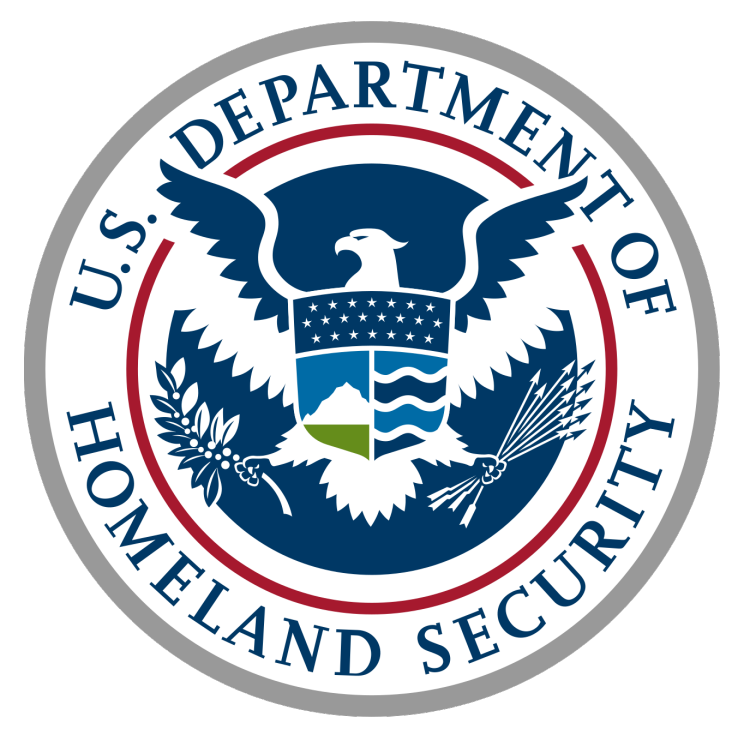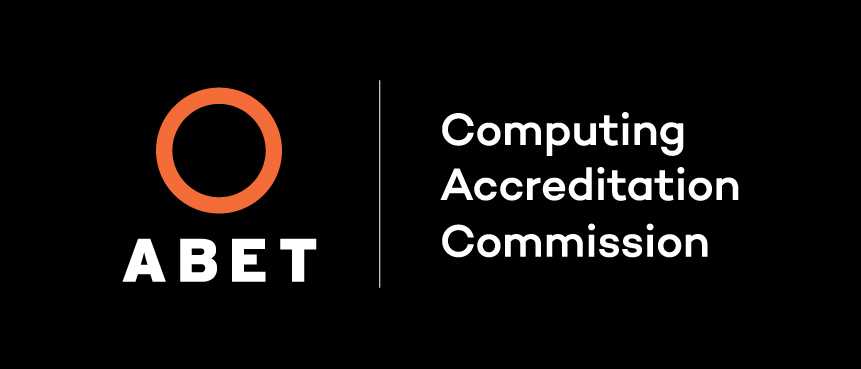Cybersecurity B.S.
Protect critical cyber infrastructure and digital assets by detecting, deterring, and defeating cyber threats.
The B.S. in Cybersecurity program at RMU prepares you to meet a growing need for skilled cybersecurity professionals in both public and private sector organizations. An unprecedented increase in cyber threats has increased the demand for cyber security and is leading to a critical shortage of qualified professionals.
- Interdisciplinary Program: This innovative degree program combines the disciplines of cyber technology, business, organizational behavior, and law needed to address cybersecurity problems in a more systematic and comprehensive manner.
- Hands-on Experience: Students use hands-on learning to master techniques to detect, respond to, and prevent cyberattacks and vulnerabilities.
- Scholar and Practitioner Faculty: Study with professors who are leading cybersecurity experts with strong professional and research backgrounds.
- Nationally Accredited: This program is accredited by the Computing Accreditation Commission of ABET.
- Industry Certifications: The program prepares students for cybersecurity-related certifications that are perfect for increasing career opportunities in the field of cybersecurity.
- High Job Placement Rate: 92% placement in a job or graduate school within a year of graduation. Graduates of this program work for both public and private sector organizations.
- Available On Campus and Fully Online: Complete your degree on campus or fully online -- anywhere/anytime.
Robert Morris University is recognized as a National Center of Academic Excellence in Cyber Defense Education (CAE-CDE) by the U.S. National Security Agency and Department of Homeland Security.


Demand for Cybersecurity Professionals
The U.S. Bureau of Labor Statistics projects a 33% percent growth in U.S. employment for information security analysts from 2020 to 2030, much faster than the average job growth in the United States.
There were 714,548 National Cybersecurity job openings from May 2021 through April 2022, according to CyberSeek, a project supported by the National Institute of Standards and Technology under its National Initiative for Cybersecurity Education program.
- Degree Requirements and Courses
-
The Bachelor of Science in Cybersecurity degree consists of 120 credit hours of coursework. The study plan below is for guidance only. Always review your individual check sheet for your degree requirements.
Courses
Major Credits - 66 Credits Required (Minimum grade of "C" must be earned for each course)
- CYBS2000 Introduction to Cybersecurity
- CYBS2010 Computing Principles & Practices
- INFS2020 Operating Systems
- INFS2151 Java Programming; or INFS2184 C++ Programming; or CYBS3250 Advanced Application Programming & Security
- CYBS3120 Introduction to Digital Forensics
- CYBS3170 Cyberlaw
- CYBS3190 Cyber Forensic Investigations; or CYBS3191 Mobile Forensics
- CYBS3220 Secure System Design
- INFS2230 Computer Networking
- INFS3235 Network Security
- INFS3240 Programming Python Language
- INFS3450 Discrete Mathematics for Computing
- CYBS3850 Ethical Hacking: Pen Testing
- CYBS4180 Network Forensics
- INFS4240 Database Management Systems
- CYBS4250 Data Security and Cryptography
- CYBS4300 Cybersecurity Risk Management
- CYBS4340 Cybersecurity Incident Response & Planning
- CYBS4350 Cybersecurity Policies, Standards, & Compliance
- CYBS4360 Emerging Topics in Cybersecurity
- INFS4370 IT Governance & Ethics
- CYBS4870 Cybersecurity Capstone
- INFS4860 Program Outcomes Assessment
RMU Core Courses - 39 Credits
Open Electives - 15 Credits - Admissions and Tuition Information
-
- The minimum GPA is 2.75
- Applicants with a GPA of 2.74-2.50 are considered for admission on a case-by-case basis.
- SAT and ACT testing scores are now optional for freshman applicants.
- Estimated Tuition
- View costs and tuition information
- Scholarships, Professional Opportunities & Student Organizations
-
Scholarships, internships and professional opportunities are available throughout the program.
- NSF CyberCorps® SFS Scholarship Program
The National Science Foundation (NSF) CyberCorps® Scholarship for Service (SFS) Program seeks to recruit highly qualified students and develop them well-prepared cybersecurity professionals to meet the growing needs of the federal, state, local and tribal government workforce and to defend America’s cyberspace. SFS students may receive up to 3 years of full funding support to complete their program. - Department of Defense Cyber Scholarship Program
- The Department of Defense Cyber Scholarship Program (DoD CySP) provides full ride scholarship grants to promote the education, recruitment and retention of qualified and selected students in cybersecurity studies at institutions with Center of Academic Excellence in Cybersecurity (CAE-C) designations, including CAE-CDE (Center of Academic Excellence in Cyber Defense Education).
- NSF CyberScholars Grant Program
- Other Scholarships
- National Science Foundation (NSF) Research and Scholarship Grant – CIS Cyber Scholars
- Seminars and Internships at The Washington Center
- Center for Cybersecurity Education
- RMU Top Secret Colonials Cybersecurity Club (Faculty Advisor: Dr. Karen Paullet)
- RMU Women in Cybersecurity Club (Faculty Advisor: Dr. Sushma Mishra)
- RMU Chapter of Order of Sword and Shield (Faculty Advisor: Dr. Frank Hartle)
- NCAE Cyber Games Cybersecurity Competition (Faculty Advisor: Dr. Ping Wang)
- National Cyber League Cybersecurity Competition (Faculty Advisor: Dr. Ping Wang)
- NSF CyberCorps® SFS Scholarship Program
- Meet the Faculty
-
The School of Informatics, Humanities and Social Sciences faculty is a team of dedicated teacher-scholars, award-winning artists, practitioners, and academics who are committed to your long-term success.
- ABET Accreditation Information
-
The B.S. in Cyber Forensics and Information Security program was renamed to B.S. in Cybersecurity. The program is originally accredited by the Computing Accreditation Commission of ABET.

Program Educational Objectives
Five years after graduation, the graduates should be:
- Contributing to the workforce in their specialty such as but not limited to computer forensics, mobile security, network security, software security, database security, or information security.
- Advancing their careers via continuous learning and professional development through the attainment of professional certification, professional study and research or graduate education.
- Assuming positions of leadership within their organization.
- Contributing to economic development and society through the prevention and detection of cyber threats in the computer-based information systems for business, government, and other organizations.
Program Outcomes
At the time of graduation, Cybersecurity graduates should be able to:
- Analyze a complex computing problem and to apply principles of computing and other relevant disciplines to identify solutions.
- Design, implement, and evaluate a computing-based solution to meet a given set of computing requirements in the context of the program’s discipline.
- Communicate effectively in a variety of professional contexts.
- Recognize professional responsibilities and make informed judgments in computing practice based on legal and ethical principles.
- Function effectively as a member or leader of a team engaged in activities appropriate to the program’s discipline.
- Apply security principles and practices to maintain operations in the presence of risks and threats.
Program Enrollment and Graduation Data
- 2020: 220 enrolled, 51 graduates
- 2019: 227 enrolled, 47 graduates
- 2018: 218 enrolled, 52 graduates
- 2017: 244 enrolled, 39 graduates
- 2016: 174 enrolled, 24 graduates
- 2015: 144 enrolled, 23 graduates
- 2014: 137 enrolled, 22 graduates
- 2013: 100 enrolled, 11 graduates
- 2012: 48 enrolled, 1 graduate
- Career Preparation & Planning
-
Career Preparation
As a graduate of RMU’s Bachelor of Science in Cybersecurity degree program, you will be prepared for cybersecurity-related jobs in areas such as network security, network management, secure programming, systems administration, cybersecurity compliance and governance, and digital forensics.
Potential Career Paths
The program is designed to prepare students for new careers in cybersecurity as well working professionals to further advance their careers. The hands-on approach in the program emphasizes that our graduates have the knowledge and skills to start working as a cybersecurity professional upon graduation. Some of the career choice available to graduates of this program include:
- Security manager
- Cyber Defense Analyst
- Compliance officer
- Cyber Defense Incident Responder
- Threat / Warning Analyst
- Vulnerability Assessment Analyst
- Exploitation Analyst
- Contact Us
-
 Dr. Jamie Pinchot
Dr. Jamie PinchotDepartment Head, Computer and Information Systems
Professor of Computer and Information SystemsEmail: pinchot@rmu.edu
Phone: 412-397-6050
Sample Courses:
These are some of the classes for students in this academic program:
Top Employers

Call us at:
1-800-762-0097
School of Data Intelligence and Technology
In the School of Data Intelligence & Technology, students are immersed in cutting-edge programs that prepare them for careers in a variety of rapidly evolving fields.
Visit School Site
